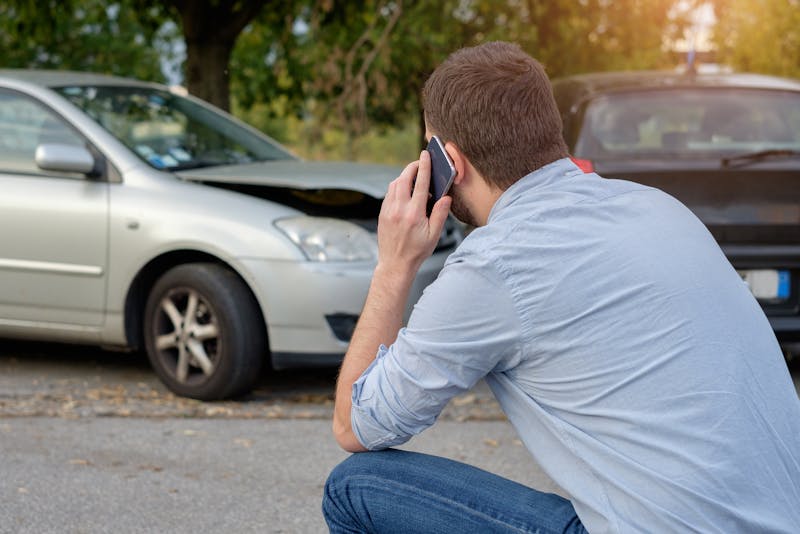
Florida is a no-fault auto insurance state, which means drivers are required to carry “no-fault” insurance that will cover certain car accident damages regardless of whether or not they were at fault for the crash. Even though Florida is a no-fault state, the issue of fault, or liability, still arises in car accident cases. For this reason, it’s important to understand how fault is determined and how the state’s comparative negligence laws could impact the outcome of your claim.
When will the issue of liability arise in your car accident claim? What are the comparative negligence laws in Florida—and how will they affect your case? Below, a Tampa personal injury attorney explains what you need to know about liability and comparative negligence after a collision.
When Can You Take Legal Action Against the At-Fault Driver in Florida?
If you’ve been injured in an accident, your personal injury protection (PIP) insurance should cover certain damages, including medical expenses and lost wages up to your policy’s limit. But if your injuries are severe, you may quickly exhaust this coverage, especially since drivers in Florida are only required to carry $10,000 in PIP coverage.

If your injuries are severe and your damages exceed your PIP policy limits, you may be able to recover additional compensation by taking legal action against the at-fault driver. An attorney can assist you with the process of filing an injury claim with the other driver’s insurance company after you have exhausted your PIP coverage.
Don’t assume that recovering compensation from the other party’s insurance company will be easy. You must be able to prove that the other driver was liable in order to obtain compensation from their auto insurance provider.
How Can You Prove Liability In A Car Accident Case?
The other party’s insurance company is not obligated to compensate you unless their policyholder was partly or completely liable for the accident. Various types of evidence may be used to prove fault in a car accident claim, including:
- Police reports
- Testimony from witnesses
- Testimony from medical experts or accident reconstruction experts
- Photographs taken at the scene of the accident
- Surveillance footage of the accident
- Medical records

Proving liability is not easy, but an attorney can help you gather the evidence you will need to establish fault. The insurance company will also conduct their own investigation into the accident to gather evidence that proves liability. Settlement negotiations will not begin until the insurance company has completed their investigation and confirmed that their policyholder was partly or completely liable.
What Are Florida’s Comparative Negligence Laws?
Some people assume that they cannot take legal action against the other driver simply because they were partly to blame for the accident. This is true in certain states, but this is not the case in Florida.
In this state, you can still recover compensation for your injuries from the other party’s insurance company even if you were partly to blame for the accident. This is because Florida is a “pure comparative negligence” state.

The pure comparative negligence laws in Florida hold each party liable for the role they played in the accident. You can still obtain compensation if you and the other driver are both liable, but the amount of compensation you will receive will be reduced to account for the role you played in the crash.
For example, say you are injured in a car accident and suffer $100,000 in damages. If the jury found that the other driver was 100% to blame for the accident, you would be awarded $100,000 for your injuries. But say the jury finds that you were 30% to blame and the defendant, the other driver, was 70% to blame for the accident. Even though you suffered $100,000 in damages, you will only receive $70,000. This is because your compensation must be reduced by 30% to account for your percentage of liability.
Under these laws, victims can technically recover compensation for their injuries even if they were more than 50% liable for the accident. As long as you are not solely liable, you may be entitled to compensation for your injuries.
How Will Comparative Negligence Laws Affect Your Car Accident Claim?
The comparative negligence laws in Florida may affect the amount of compensation you receive for your injuries. If the other party can prove you were partially to blame for the accident, the court will reduce the amount of compensation you are awarded.
Defendants in personal injury cases often use comparative negligence as a defense strategy. They may try to convince the jury to assign a significant percentage of the blame to you in order to minimize the amount they are ordered to pay you for your injuries.
The higher the percentage of blame that is assigned to you, the less the defendant will have to pay. Don’t let an insurance company get away with avoiding liability.

Make sure you are fully compensated by seeking legal representation from a skilled auto accident attorney who knows how to protect your rights. Your attorney can present a strong case that convinces the jury that the other party was solely or mainly responsible for the accident.
Seek Legal Representation From An Experienced Auto Accident Attorney Right Away
Securing the compensation you are entitled to by law after a car accident is not easy. Don’t face this challenge on your own—turn to the experienced auto accident attorneys at Carlson Meissner Hart & Hayslett for help immediately after a collision. Our team of knowledgeable attorneys has won over $115 million in compensation for injured victims of negligence in the Tampa Bay area. We know what it takes to recover as much compensation as possible for our clients—let us put these skills and resources to work for you.
Contact our law firm today to schedule a free consultation regarding your car accident claim. Let us explain your legal options and help you understand how we can help you win compensation.

